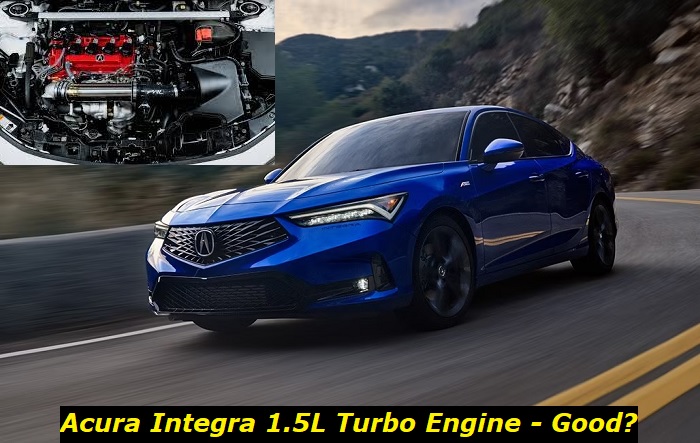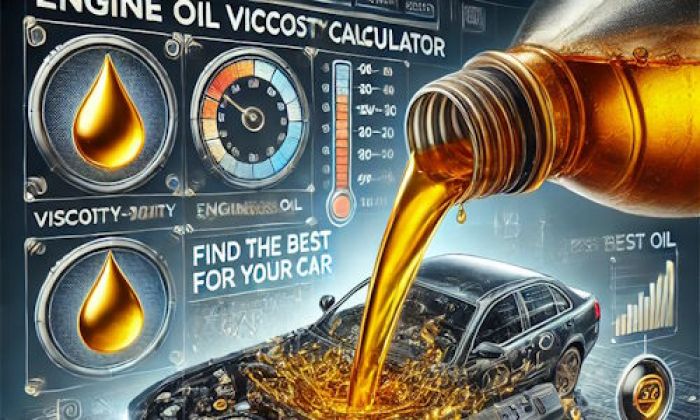The Integra is a legendary car that is marketed in the majority of countries as the Honda Integra and has the name Acura in the North American market. Last year, we got the new generation of vehicles (DE) and now I have something to tell you about its engine that started getting first reviews. It's my turn to talk about the new Integra now.
In this article, I will tell you everything I know about the 1.5L Turbo engine that powers the Acura Integra in the US, about its durability and specs. I will cover also the transmissions that are available for the engine so that you could easily choose the vehicle that corresponds to your needs.

Key specs and my opinion about the engine
- Production years:2022-now
- Average lifespan of L15CA:140,000-170,000 miles
- Fuel supply type:direct injection
- Power range:200 hp
- Fuel efficiency:good
- Engine block material:aluminum
- Engine reliability score:medium
- The most common problems:carbon buildup on intake valves, VTEC phasers problems, chain issues, ignition coils' bad lifespan.
What should you know about the new Integra 1.5L Turbo engine?
The only engine that is now available with the new Integra in the US is the 1.5L turbocharged L15CA engine. You may think that you know this engine because a lot of other Honda models are powered by the 1.5 Turbo engines now - the CR-V of the Civic, for example. But no, this is not the same engine and you shouldn't compare them.
The L15CA is a performance-oriented engine that belongs to the same "Earth Dreams" series of engines that all other modern 1.5L powerplants that you will find under the hood of the CR-V. But the L15CA engine is a little different in terms of the technologies Honda used when making it.
Here are some key facts you may want to know about the Integra engine:
- this is the 1.5-liter 4-cylinder turbocharged engine offering 200 horsepower and 190 lb-ft of torque;
- the same engine is also used in the new Honda Civic Si - the performance version of the Civic;
- the engine is equipped with the VTEC technology that was largely remastered for the Earth Dreams engines;
- the VTEC is available here not only in the intake, like in other 1.5L engines, but also in the exhaust valves;
- the turbo was updated greatly along with the exhaust manifold making the boost available at a wider range of RPM;
- the engine is equipped with the CVT in the majority of versions, but in the top trim of the Integra you may also get a manual transmission;
- wonderful gas mileage offers you to go 30 MPG in the city traffic and about 37 MPG on highways which is really surprisingly good.
That's a pity that you can't get AWD in these cars. I suppose it would work just great with all-wheel drive and the manual to create full control over the vehicle in any cornering situation or at high speed. But the Integra is only offered with the front-wheel drive.
This is not actually the sport-oriented engine, it will only get to 60 MPH after about 7.8 seconds if you start from zero speed. And it's not that great. But looking at its gas mileage, efficiency, and also well-balanced technologies, I understand that Acura Integra is balancing between being fast and reliable. And it's an unexpected thing I revealed when studying the specs of the engine.
How long will the 1.5L engine last in the Integra?
The longevity question is not that easy. We don't have a lot of stats or reports about the problems in the Integra or Civic Si because those cars only started hitting the roads. Also, it's not really correct to compare the L15CA engine with any other L15C powerplant because the difference in technologies is significant. But I'll give it a try, anyway.
So, in my opinion, the 1.5L Turbo engine in the new Integra will last approximately 140,000 miles if you drive it like an average car and up to 100,000 miles if you drive it aggressively like a sports-oriented vehicle.
You can get frustrated with these estimated figures, but there is nothing I can do - this is the average longevity of small turbocharged engines that are boosted to have over 100 horsepower from 1 liter of displacement. Also, we have some really new technical solutions here like the complicated exhaust manifold that is integrated into the engine and channels exhaust to two main channels that then rotate the turbocharger more efficiently.
I don't know if the VTEC on both valves is a good idea in terms of durability. Almost sure that this will only add problems after the Integra hits 100,000 miles.
What are the common problems with the Acura Integra engine?
So, the new Integra engine is still very new and I can't guarantee that you will obviously have all these problems with your engine. But looking back at other engines in the series and also at some new technologies introduced in the L15CA, I can say for sure that it's not the non-problematic engine that will live a long and happy life. It's made for fun driving, and it doesn't consider durability as the main advantage.
Here are some issues that may happen with the engine:
1. Carbon buildup and hard cleaning
This is the direct injection engine with no port injectors to save the intake manifold from being clogged with carbon buildups. But cleaning this head is not something you will want to do. Even getting to the intake valves may be challenging, so I believe this work will cost you a fortune in the dealership.
If ignored, the buildup will lead to poor efficiency and will basically interfere with the VTEC on the intake valves which will lead to all kinds of different expensive problems.
2. VTEC issues
You may be sure that the double VTEC system brings double problems. After about 50,000 miles, you can expect to get the first issues with the valve-lift control and these issues will then continue showing up there and then.
Although it's not that hard to solve, this problem will still cost you a lot of money to repair. I think, within the next 3-4 years only dealerships will repair your updated VTEC system in the 1.5L Turbo engine in the Integra.
3. Chain problems after 100,000 miles
When this engine gets to 100K miles, you may consider it old and about-to-die. The chain will not last much longer than that. Although Honda installed bigger and thicker chains in the L15CA engine, they still are going to rattle and stretch fatally. Just like in all other L15 engines that were equipped with chains.
The only cure is the replacement and this will also cost you some money. Chein replacement in the Acura engine is expensive for both labor and parts. Also, you need to consider that the engine is not going to live very long after that, so sometimes this investment is very doubtful.
4. Ignition coils are failing
Even now, when the Civic Si and the Integra are very fresh vehicles, I'm starting to see some ignition coil problems reported in different forums. Well, as with all other L15C engines, the Integra powerplant is going to tear your budget with those super-expensive ignition coils that may fail randomly at any mileage.
Fortunately, replacing them is not that hard and will not cost a lot in terms of labor or can be done as DIY maintenance.
5. Tubo issues
The system of the turbocharger was changed to avoid common problems that were reported with other engines in the series. But we still don't know if those changes were actually good or not. If you ask me, I will be very skeptical about those improvements. Honda prioritized power and torque in these engines but not durability, so the turbocharger upgrades need to be seen as potential problems.
How can you prolong the life of the 1.5L Integra engine?
There is nothing much you can do in terms of repair or maintenance. Just stick to the recommended intervals and never forget to arrive on the regular maintenance to your Acura dealer when needed. This is important because even a small deterioration of the oil properties may lead to issues with the VTEC and the turbocharger.
But there is much more you can do in terms of your driving style with the L15CA engine:
- avoid too aggressive driving and rotating the engine over 5500 RPM;
- don't ignore any signs of overheating and never let your engine heat up over its working temp;
- check the oil levels regularly and have the engine inspected if the oil consumption is extensive;
- heat up the engine before you start driving in the morning - at least 45-60 seconds of idling are needed;
- don't ignore unusual sounds from the engine like rattling or squealing.
Also, you will need to pay attention to the CVT. While the manual is most likely eternal in the Integra, the CVT is not going to live very long. But given the expected life of the engine is about 140,000 miles, the transmission should be OK and go without any repairs. Just don't miss the transmission fluid change interval.
About the authors
The CarAraC research team is composed of seasoned auto mechanics and automotive industry professionals, including individuals with advanced degrees and certifications in their field. Our team members boast prestigious credentials, reflecting their extensive knowledge and skills. These qualifications include: IMI: Institute of the Motor Industry, ASE-Certified Master Automobile Technicians; Coventry University, Graduate of MA in Automotive Journalism; Politecnico di Torino, Italy, MS Automotive Engineering; Ss. Cyril and Methodius University in Skopje, Mechanical University in Skopje; TOC Automotive College; DHA Suffa University, Department of Mechanical Engineering






Add comment